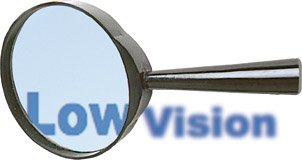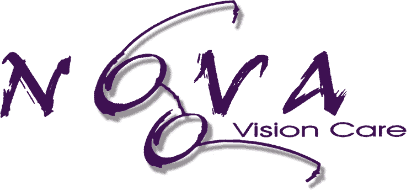Coping With Low Vision

What is low vision?
Low vision is the term used to refer to a visual impairment that is not correctable through surgery, pharmaceuticals, glasses or contact lenses. It is often characterized by partial sight, such as blurred vision, blind spots or tunnel vision, but also includes legal blindness. Low vision can impact people of all ages, but is primarily associated with older adults.
Tips for Coping with Low Vision
Many visually impaired people experience difficulty performing the activities of daily living such as cooking, shopping, managing finances, watching television, reading, and taking care of their personal needs. They have concerns about finding and keeping a job, dealing with friends and family members, getting around, and participating in recreational and social activities. The good news is that there are countless low vision aids and other proven strategies for coping with low vision. These can help people with low vision maximize their remaining vision and maintain their independence. Dr. Busch or any other Optometrist that specializes in Low Vision can help navigate a treatment plan to achieve the best possible vision.
Some of the most common mechanisms for coping with low vision include the following:
Use contrasting colors. For instance, use a dark table cloth with white plates so you can see table edges and food more prominently.
Label everything. Bold labels or stickers of varying shapes will be easy to identify with some practice. Also, using puffy paint or another texture to give texture to labels will help.
Make it bigger. Many companies offer devices with large display screens, watches with enlarged faces, and buttons that are bigger and easier to differentiate from one another. This can make telling time, changing television channels, and even weighing yourself easier.
Keep it clean. With items in their proper places, they will be easy to locate quickly. Establishing the organization and discipline will take some time, but once it becomes habit, daily activities will become easier.
Seek help. Possibly the hardest step to take is asking for assistance. There are people in many shops trained to assist people with low vision. Even passersby are often happy to help if the request is made. There are also numerous low vision support groups operated from senior centers, libraries, and hospitals.
Use the buddy system. Low vision is common among aging adults. As one of the side effects of low vision is a feeling of loneliness, finding a friend or support system in your community can be very helpful. You will be able to learn tips and tricks that have worked for other people in your same situation.
Be patient. Coping with low vision is not simple. Developing your own tricks and methods takes time and effort. Go easy on yourself and keep trying. Eventually, you will find the best solutions for your specific visual impairment.
Practice. Once you have your methods in place, practice them. Similar to riding a bike, as you learn new ways to perform tasks, they will become easier and easier.
To schedule a low vision exam or to get more information please contact our office Nova Vision Care at (937) 320-0300.
